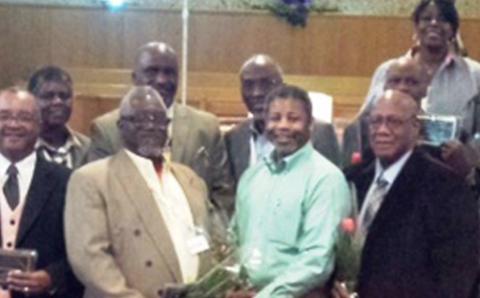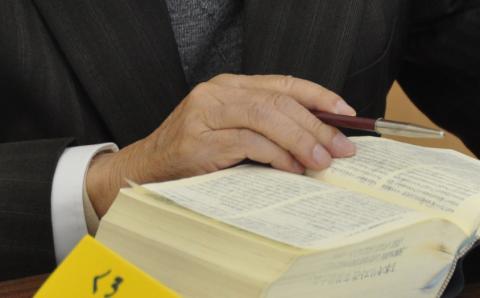From executive director Steven Timmermans’s declaration that the Christian Reformed Church is growing and that ministry shares income is stable to delegates who were willing to launch a new board governance structure with very little detail; from approving the joining of two historic mission agencies to changing the face of synod by delegating deacons starting next year, Synod 2015 wanted to look forward, not back.
For the last few years, synods have shown a church moving forward in small steps. This year, synod boldly leapt. (Synod is the annual leadership meeting of the Christian Reformed Church.)
Synod 2015 made two particularly historic decisions. It agreed to join together Christian Reformed Home Missions and Christian Reformed World Missions, two of the main missions agencies of the CRC, and it decided that deacons will be delegated to both synod and classis meetings starting in 2016.
The latter decision was years in the making, with reports and recommendations that date back at least five years. The former came much more suddenly. Although the two agencies have worked together more and more closely in recent years, a concrete proposal for unification emerged only six months ago. For a church that generally takes years, even decades, to make such a major decision, this one came at lightning speed. It is an indication that church leaders recognize that every context, whether in Nigeria or New Jersey, is a mission field.
After decades of taking half-measures to change the board governance structure for the denomination, this year’s delegates took the leap toward a major overhaul despite having few details about what that will look like. Those details will be worked out by the executive director and a transition team. With the proposed Council of Delegates (CoD), classes (regional groups of churches) will get full representation rather than regional representation. The Board of Trustees, and the boards of World Missions, Home Missions, and Back to God Ministries International will all be folded into the new CoD. The three mission agencies will be more specifically represented on a global missions subcommittee of the new CoD. To manage what will become a massive agenda, the Council will follow a policy governance model rather than an operational oversight model. It is unclear how many times the CoD will meet each year. A smaller executive committee will meet more often and make decisions to be ratified by the CoD.
One major reason for that level of trust comes with the appointment of Colin Watson as the director of ministries and administration. With him aboard, and the appointment last year of Steven Timmermans and Darren Roorda, the church finally has a full complement of staff on the senior executive team after years of people serving in transition positions. As Rev. Paul Vander Klay, Classis California South, said, “We’ve got a plan, we’ve got the people; we should empower them and set them loose.”
Interviews with two new seminary professors, following on the heels of appointees approved at the previous two synods, show that we can have confidence in a new generation of professors teaching a new generation of our ministry leaders. The appointment of Carol Bremer-Bennett as the new director of World Renew-U.S. also brings hope for continued good leadership.
Through its deliberations and its worship, Synod 2015 showed a church that seeks to be ever more welcoming of those who have long been on the margins: women and people from ethnic minorities. Whether through delegation or through advisors, synod wants to hear their voices. Two of this year’s finest worship moments were led by a woman and an African American man.
But there is a thundercloud on the horizon, one that has caused storms in many denominations already. This year’s discussion about All One Body and those who support it shows that our discussion about homosexuality will be far from easy. All One Body supports full inclusion in the church of practicing homosexuals. Classis Minnkota wanted synod to admonish churches in Classis Grand Rapids East that are being hospitable to that group. Synod declined to do so. This year’s debate is a harbinger of what will happen next year when the Committee to Provide Pastoral Guidance re Same Sex Marriage makes its report. The coming years will not be easy as the church tries to bridge the gap between classes like Minnkota and Grand Rapids East.
At the beginning of synod, Steve Timmermans noted that we “tend to be a dour bunch.” But for this year, there was a remarkably good spirit marked by moments of great grace. At Synod 2015, delegates preferred to see the glass half full rather than half empty, knowing full well that God holds the glass.
About the Author
Gayla Postma retired as news editor for The Banner in 2020.









